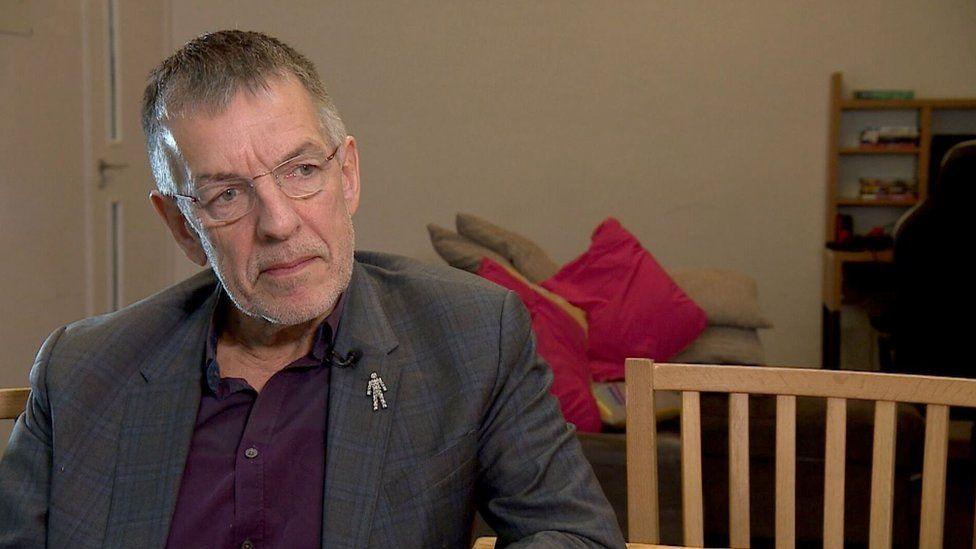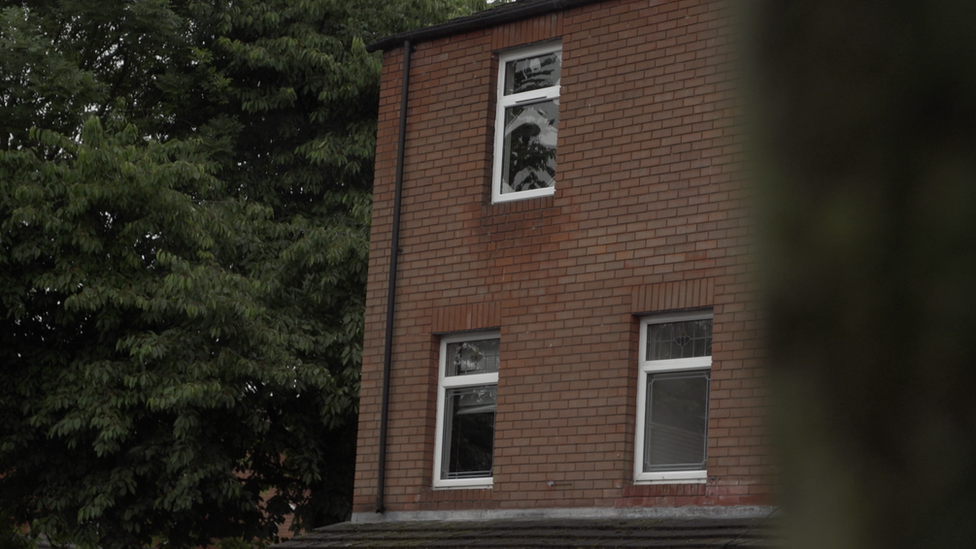Children in care homes 'seen as criminals not victims'
- Published

Children in care are treated as "criminals rather victims" (Picture posed by a model)
Children in care are too often treated in society as criminals rather than victims, an independent body has said.
Applications to build new care homes are regularly met with hostility by nearby residents, said the Independent Children's Home Association (ICHA).
Chief executive Peter Sandiford urged communities to view the wellbeing of children above fears over house prices.
Since 2017 the number of children's homes in England has risen by at least a quarter, to more than 2,700.
Mr Sandiford said: "I think local communities and people often think about themselves rather than valuing children's wellbeing.
"An example would be how local communities think their house prices will go down if they have a children's home in that area."

Independent Children's Home Association boss Peter Sandiford says neighbours are often 'hostile' to new homes being built
Mr Sandiford said residents were often "at the very least reluctant, if not actually hostile" when plans for children's homes are revealed.
"For some reason they seem to believe that children who require care away from their families are criminals rather than victims, with objections to planning consents having included terms such as 'murderer' and 'rapist'," he added.
"Children in public care have almost inevitably experienced early life trauma and, for many, ongoing trauma.
"The task of children's homes is to address the consequences of such experiences and help children achieve their true potential."
Social services initially seek to place children with foster families, but this is not always possible.
The number of foster carers is not keeping up with demand.
Residential homes are therefore an important part of children's social care, providing support for those who cannot live with their families.

However, communities are often divided when planning applications for children's homes are submitted to their local council.
Author and poet Lemn Sissay spoke to the BBC about his concerns about the care system.
Author and poet Lemn Sissay, who grew up in the care system, spoke to the BBC about Mr Sandiford's concerns.
He said: "This is about inherent prejudice against children in care.
"Having a children's home in your area should be something people want - a sign of caring for the most vulnerable in society, a sign of kindness.
"Instead we have people falling back on unchallenged prejudice."

"It's a massive stereotype"
Lee - not his real name - is 17. He recently left residential care in the North West of England.
He said: "I think children's homes have a really bad reputation.
"There needs to be more education around what children's homes are actually like.
"There's crime and anti-social behaviour, no matter where you go.
"It doesn't make a difference whether you're in a children's home or not - it's a massive stereotype if anything."

Despite the growing demand for children's care homes, provision is not equally spread across England.
More than a quarter are found in the North West, with Lancashire home to the highest number.
At the other end of the scale, several London boroughs, including Lambeth and Hackney, are among nine local authorities with only one registered children's home.
Per capita, Shropshire has the highest number of children's homes with roughly one for every 5,000 people.

Richard Witt is one of the owners of Hopscotch Care, a company which owns seven care homes across the North West.
He said his company recently had problems gaining permission to convert a residential property into a home for just two children, with objections relating to parking and anti-social behaviour.
Mr Witt said: "We've got young people who are vulnerable, who have come from some very complex backgrounds, but they're just young children.
"Children's homes don't have to be a problem."

Objections to applications for children's homes include fears regarding anti-social behaviour, reduced house prices, and that residents may be sex offenders or targeted for crime.
According to the Local Democracy Reporting Service:
One objector to a care home in Leicester, external said the children's "challenging behaviour probably will disrupt the current residential nature of [the road] and could pose significant risks to neighbours".
Objections to a children's home in Newcastle-upon-Tyne, external included claims that the plans would harm "residents' peace, tranquillity and health".
Plans for a children's home in Sheffield, external were approved despite fears those living in the property would "become entrapped by criminals, groomed and exploited".
An application for a children's home in Derby, external was withdrawn after almost 100 objections were lodged
Objectors to a home in Stoke, external said the area was "not a place suitable for unsupervised troubled teenagers".

Adele Warren, a Conservative councillor on Bolton Council, recently backed a campaign opposing a new children's home in the area.
She said: "At the time we already had 30 children's homes in the borough, with an additional eight to 12 that were also planned.
"When the first one came along, I actually defended that home to local residents.
"Then when there was the second and then the third; obviously that became quite concerning for local residents."
Ms Warren said that although there are "some very good private children's homes", there are others that are "capitalising on shipping children that are very vulnerable across the country for placements".
Other objections to children's homes relate to the companies that own them, including large private equity groups considered to be making large profits, or those previously judged unfavourably by Ofsted.
However, figures from Ofsted show that four out of five homes in 2021 and 2020 were judged as "outstanding" or "good".
Mr Sandiford said: "Children living in children's homes are the responsibility of society.
"Local politicians and national politicians have joined with local residents to fight the opening of children's homes. My belief is those leaders in society should be challenging those myths - that nimby-ism - rather than joining in."
A government spokesperson said: "Children's homes provide places for young people who require dedicated support and care, who may be particularly vulnerable to exploitation or harm.
"Councils are responsible for ensuring sufficient places to meet those needs and we are making up to £19.5m of capital funding available in 2021-23 for councils to develop new homes for vulnerable young people.
"As with any planning application, where there is a change of use of a building to convert to a children's home, the community will be given an opportunity to comment."
Related topics
- Published9 September 2020

- Published19 February 2021

- Published19 September 2019
